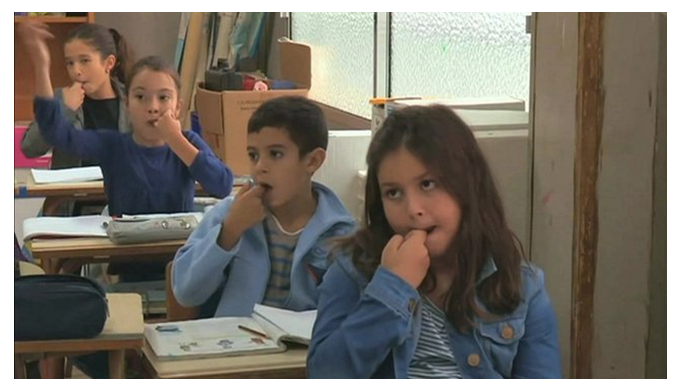Can language learning unite a community?
Understanding a community’s language to improve social sohesion
Languages in the Rainbow Nation: Nearly 4000 schools across South Africa are expected to introduce an African language in Grade 1 next year following the success of a pilot project in 228 schools this year: “One of the aims of the (Department of Basic Education’s Incremental Introduction of African Languages (IIAL) initiative) is social cohesion, and this has been realised in all the pilot schools where the whole school community have supported the offering of an African language in the curriculum. Parents in particular have requested that IIAL should be continued” spokesman Elijah Mhlanga.
From Australian Federation of Modern Language Teachers Associations (AFMLTA): “…Most discussions of language teaching take it for granted that everyone knows why they are teaching the second language… Teachers should be clear in their minds that they are teaching people how to use two languages, not how to use one in isolation. The person who can speak two languages has the ability to communicate in two ways. The aim is not to produce L2 speakers who can only use the language when speaking to members of their own group… Nor should the aim be to produce imitation native speakers, except perhaps for trainee spies. Rather the goal should be people who can stand between two viewpoints and between two cultures, a multi-competent speaker who can do more than any monolingual…” (from Vivian Cook’s 2008 volume entitled Second language learning and language teaching)
Language fosters global citizenship: “a good global citizen has a moral commitment to improving the world. In order to understand the problems of a culture, we need to understand the culture and speak the language of that culture.” Eric Krasnow, student winner of the “Many Languages, One World” International Essay Contest, co-sponsored by the United Nations Academic Impact initiative
Protestants go for Gaelic in Northern Ireland: Historically, few Protestants have learned how to speak Irish Gaelic – but that may be starting to change. “The Irish language is part of our culture. It belongs to everyone,” said Linda Ervine, Irish language development officer.
According to the American Council on the Teaching of Foreign Languages: research suggests that language learners develop a more positive attitude toward the target language and/or the speakers of that language.
A new report on Multilingual Britain (Cumberland Lodge / British Academy) concludes that: “Multilingualism is crucial for intercultural relations. Language skills facilitate working, studying and travelling internationally. They offer a path to understanding other ways of living and encourage tolerance and positive social relations. At a local level there have been fears that developing community languages keeps a community closed and societies divided. Yet programmes that involve sharing language skills and cultural resources can help with integration and build social cohesion.”
First Minister Praises ‘Sharing Languages, Sharing Cultures’ Project: First Minister of Northern Ireland, Peter Robinson, underlined the value of sharing and integration at a ceremony to celebrate a language project in County Down: “‘I believe that shared education is the way forward for Northern Ireland and you have taken an important step along that road and one which is supported by schools from right across the community.’ The Sharing Languages, Sharing Cultures project involves 253 children in small, rural, single-identity and integrated primary schools joining for language lessons and workshops, co-ordinated by Shimna Integrated College.”
Languages Today Magazine- How languages can unite the kingdom: At Language World 2009, Keith Ajegbo gave a fascinating talk about community cohesion, and how language learning can unite different cultural and socioeconomic groups.
British school has no pupils who speak English as a first language: “Despite the language barrier the school has scored highly in its Ofsted reports and the headmaster sees bilingualism as an advantage. Christine Parker, the head, told the Sunday Times: ‘More and more of the world is going bilingual. he culture at our school is not to see bilingualism as a difficulty.’ The Guardian spent a day at Gladstone Primary School; to find out more please read their article here.
Hamas puts Hebrew on the curriculum for the first time in 20 years: “‘We are neighbours with Israel whether we are at war or peace. So we need to learn their language.’… Around 750 ninth-grade pupils in Hamas-run schools have begun studying Hebrew in a pilot scheme that could be extended in the coming years. It is the first time for almost two decades that the language of Israel is on the school curriculum.”

